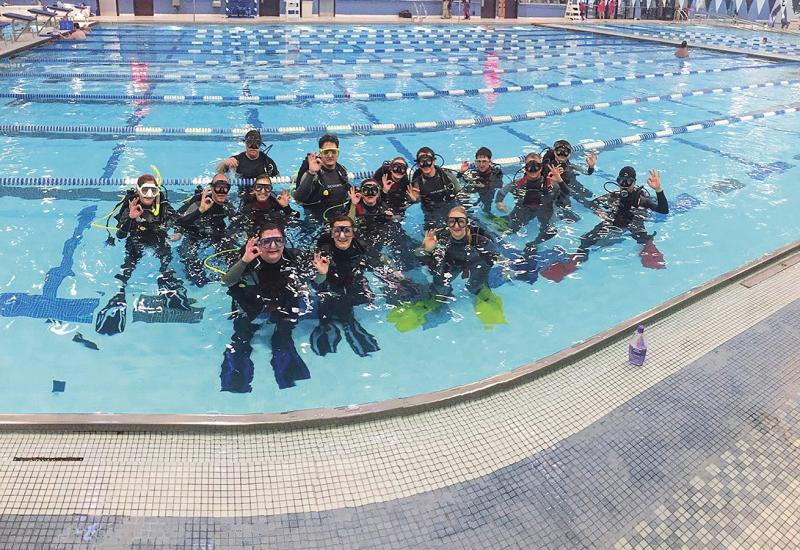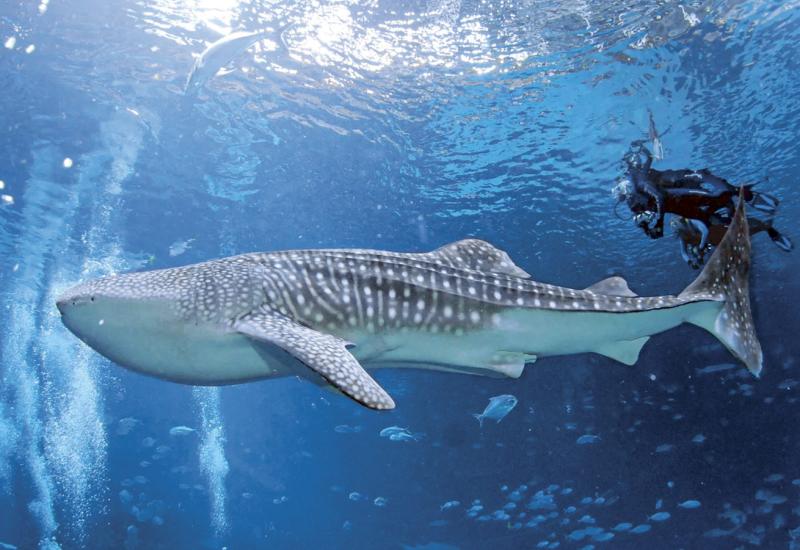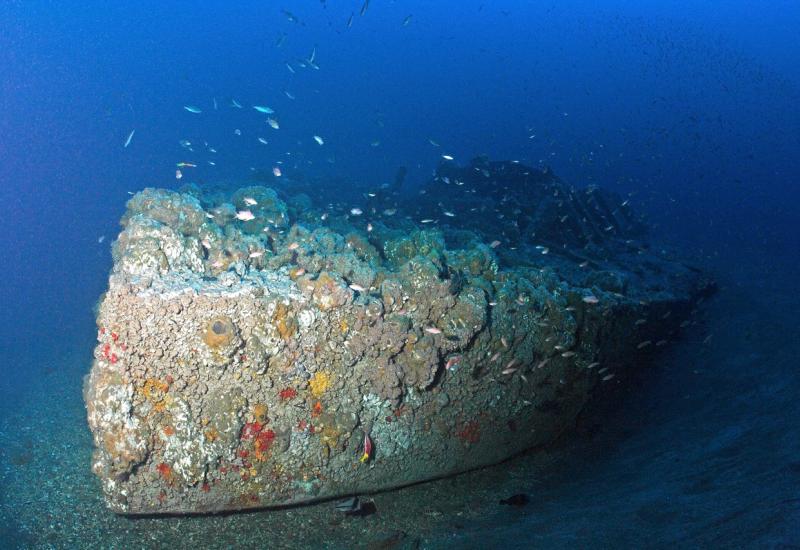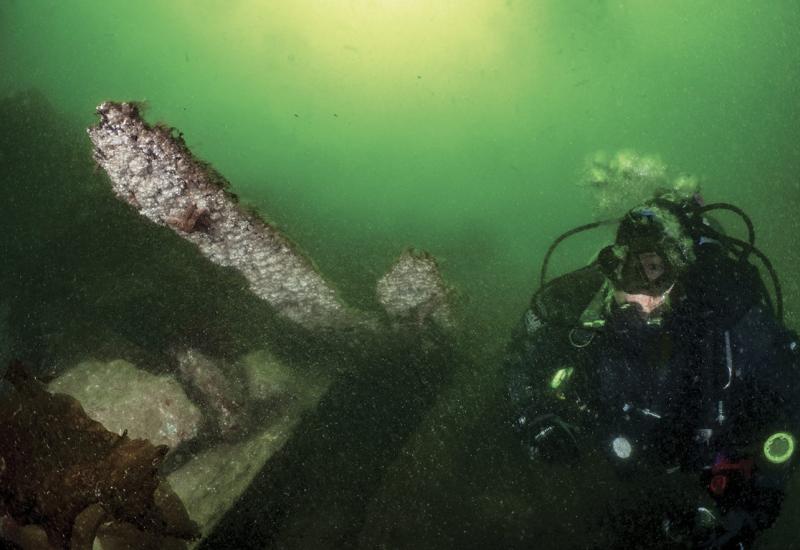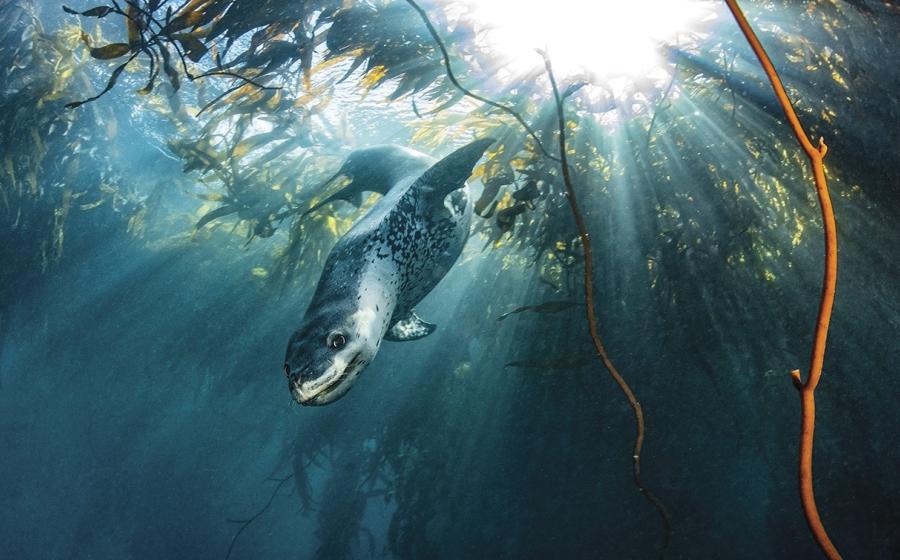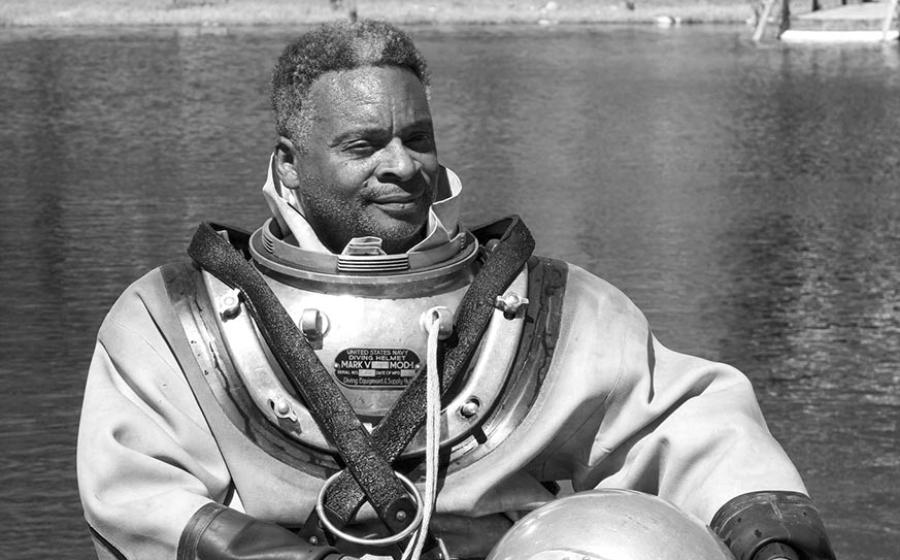Scuba Diver Profile: Peter Hughes
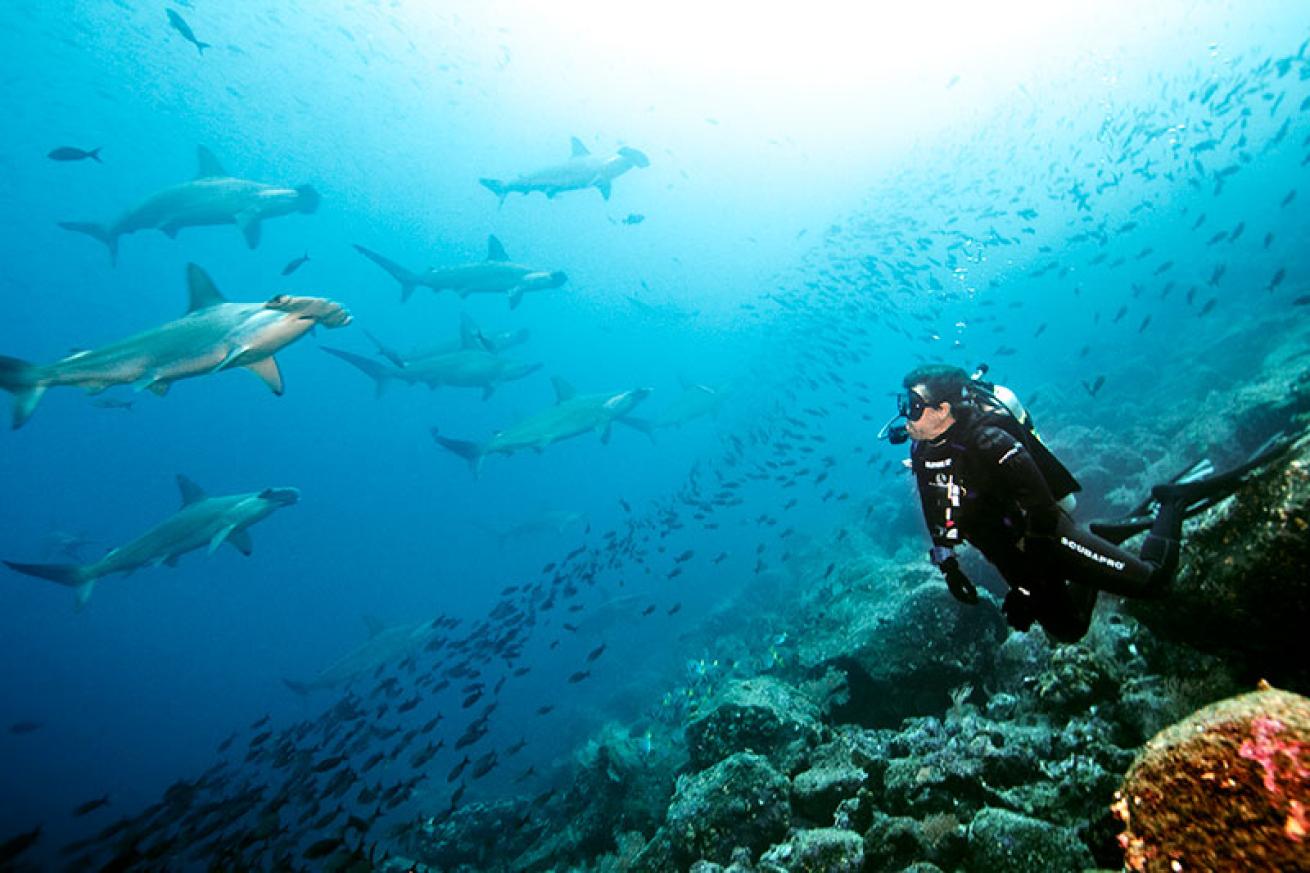
Michele WestmorlandPeter Hughes encountering a school of hammerhead sharks in the Galapagos.
Peter Hughes is a dive legend who has spent more than 60 years in the industry — he learned to dive at the age of 10 — and has a lifetime of amazing, cherished memories to share. There are few scuba divers who can match his life of underwater adventure.
MEET PETER
Age: 70 Hometown: Boynton Beach, Florida Years Diving: 60 Highest Level of Certification: Open Water Scuba Instructor (YMCA 1970, PADI 1976)
Sport Diver: You were inducted into the 2018 Academy of Underwater Arts and Sciences (AUAS) Fellow Program with a NOGI Award for Distinguished Service at DEMA 2017. Other recipients of this particular NOGI include Captain Jacques-Yves Cousteau. What does the award mean to you?
Peter Hughes: As a 70-year-old who has been in the recreational diving business on a full-time basis since 1968, this is the ultimate reward for years of hard work. I am flattered, honored, humbled and a bit embarrassed to have been so recognized. I feel there are so many others perhaps more deserving than I.
SD: You had an interesting start as a diver. Tell us about it.
PH: In 1954 when on summer holiday in Tobago with my family, we had the pleasure of meeting Bill and Anne Petry of Atlanta, Georgia, who were in Tobago to set up Camp Crusoe — a watersports summer camp for teenage boys. They taught sailing, rowing, water skiing and a heavy emphasis on freediving (spearfishing) and Aqualunging (scuba diving as we knew it then). I was fascinated. Bill promised me at age seven (with my father’s approval) that if I came back to Tobago when I was 10 years old, he would teach me to both freedive/spearfish and “Aqualung.” My father ensured we were there that summer and Bill kept his promise! This fact, and the birthday gift of The Silent World from my father sealed the deal! The rest is history, but I must add, my first love was freediving with a speargun in my hand — it was the mid-’70s before I put down my gun!
“Having both parents teach where I went to the British equivalent of high school in Trinidad left me with a dislike of school. When my father realized I was not going to pursue my education further he said: ‘Always treat others with respect, never lose your integrity, keep your feet on the ground and you’ll be alright.’ I have tried to keep these wise words front and center ever since!”
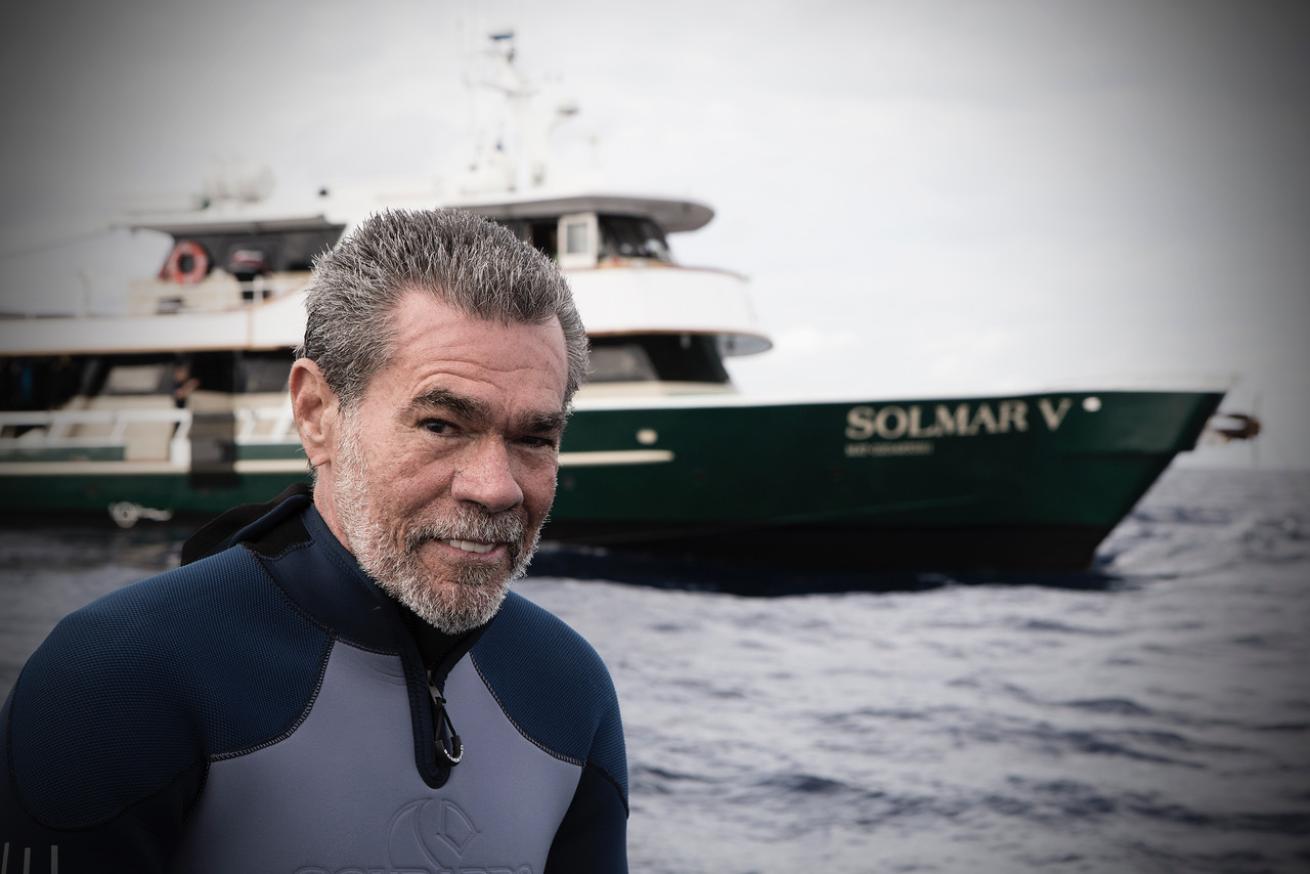
Courtesy Peter HughesHughes during a liveaboard trip to the famed Socorros.
SD: What was it like when liveaboards were a novelty in the industry?
PH: My first introduction to a liveaboard was in 1973 in Roatan, where I was working as divemaster / dive manager at Anthony’s Key Resort. The Cayman Diver sailed into Roatan with Capt. Paul Humann in command and with several other VIPs on board as his guests — Paul Tzimoulis, Carl Roessler, Dewy Bergman, to name a few. They needed advice on the best places to dive while in Roatan. I was able to offer them that advice and guidance, and in 1974, the Cayman Diver returned to Roatan. Capt. Paul Humann brought the vessel - a converted, wooden-hulled, ex-Coast Guard vessel, not unlike the Calypso, as I remember it, to Roatan for annual dry docking. I again got involved with Capt. Paul and the Cayman Diver as this was the year Hurricane Fifi was approaching Roatan (we took a direct hit from a Category 4 hurricane on Sept. 17, 1974), and I needed to provide certain assistance to Capt. Paul as a result of the impending storm. That vessel (it had to be one of the world’s first liveaboards) was pretty basic, as was the next generation of liveaboards that followed in the early ’80s. The only real upgrades were that they were converted aluminum (ex-oil field crew boats) vessels as opposed to a very old, all-wood vessel. They had tiny cabins down below with zero natural light, only one toilet and only one shower to be shared by all on board (guests and crew, male and female,) tight bunkbeds and simple buffet meals served on plastic tableware. I knew there was a better way!
SD: What are some of the changes you brought to the liveaboard industry that you are most proud of?
PH: Ensuring natural light (even if only by way of small portholes (actually port lights if one wants to be technically correct) in all cabins, enlarging cabin size in general, eliminating bunkbeds as quickly as possible and installing queen beds and/or twin beds that could be placed separately or together (forming a king bed) to accommodate passenger needs, adding en-suite toilets and showers in all cabins, building cabins / staterooms on upper decks to allow for more space and “picture” windows, and serving upgraded meals on china dishes and drinks in crystal glasses in a dining room with buffet meals enhanced by ”to your table” service in the evening for dinner. Peter Hughes Diving amenities included plush bathrobes, hairdryers in all rooms, daily towel changes, bi-weekly linen changes, AM beverage wake-up service to your cabin / stateroom door, all beverages included and free nitrox! All these upgrades were intended to make liveaboard diving a more luxurious experience and therefore broaden the market base, particularly with an eye to attracting more women divers. These are some that jump immediately to mind, and I must, most of this was at the direction of my wife Alice!
SD: What's something you haven't done as a diver that you'd like to do?
PH: Something I have always wanted to do, but at my age I no longer believe I have the “cojones” to handle the cold water, is to dive the wrecks of Scapa Flow.
SD: Who do you admire and why?
PH: Bill and Anne Petry (unfortunately, both fairly recently passed). Bill and Anne taught me everything I needed to know, and gave me my first opportunity — Tobago 1968 — to make a career out of what I was always so passionate about — diving!
SD: What do you hope your legacy will be?
PH: Simply that my wife and I, first in resort-based diving and then in liveaboard diving, always focused on making it a comfortable and easy recreational activity and on attracting female (Alice’s doing) divers and therefore, growing the market while never losing sight of the need for education and conservation.

